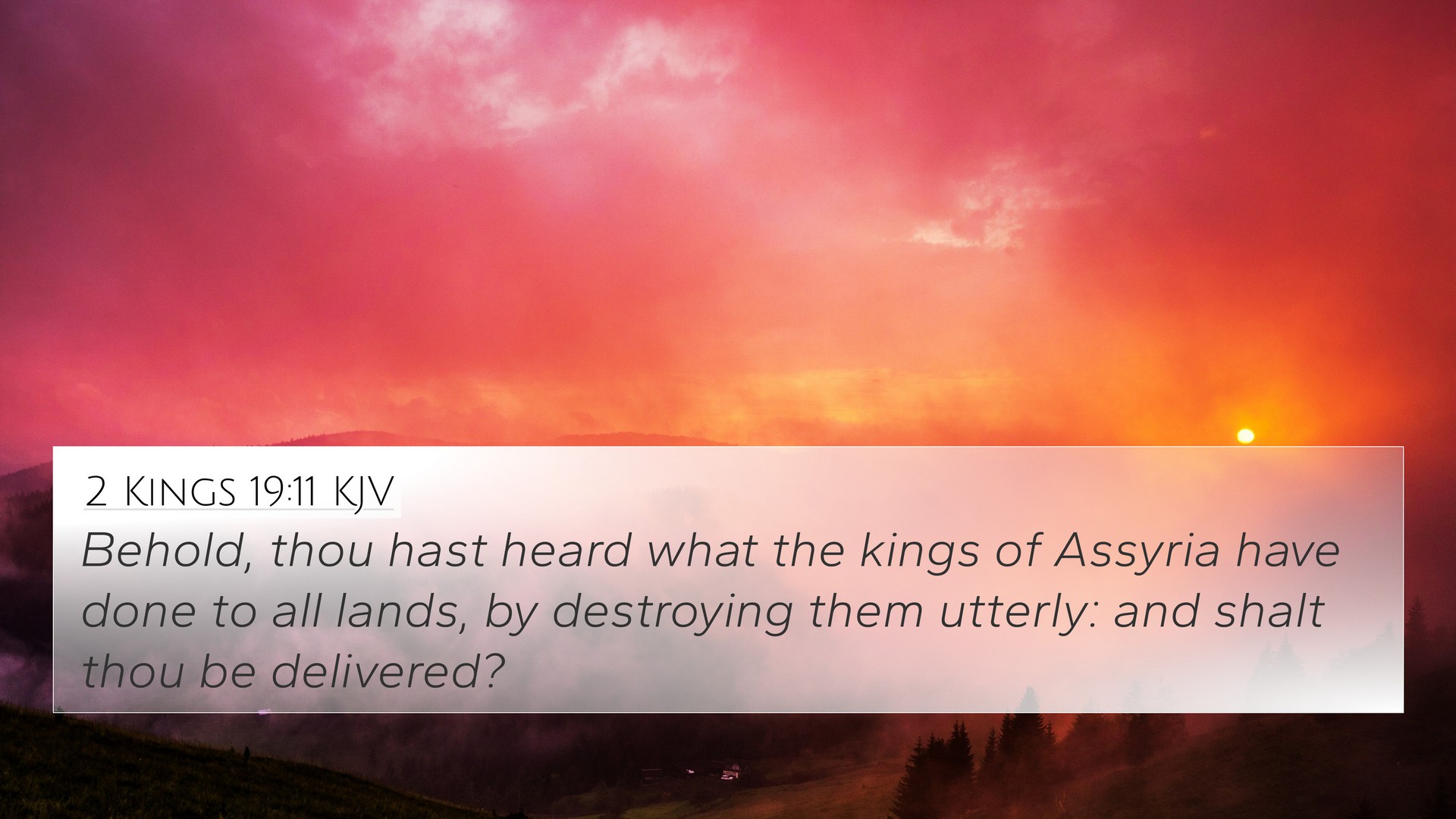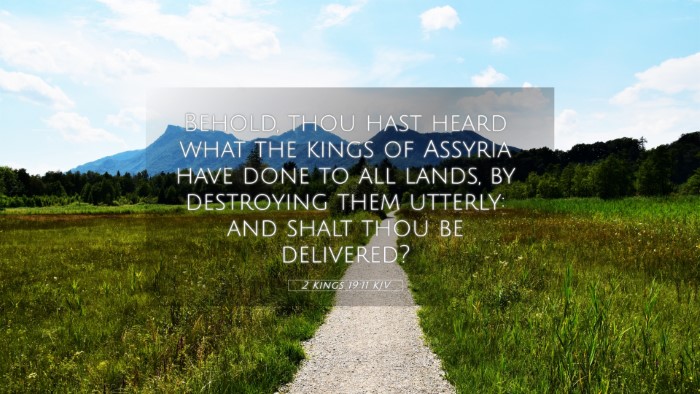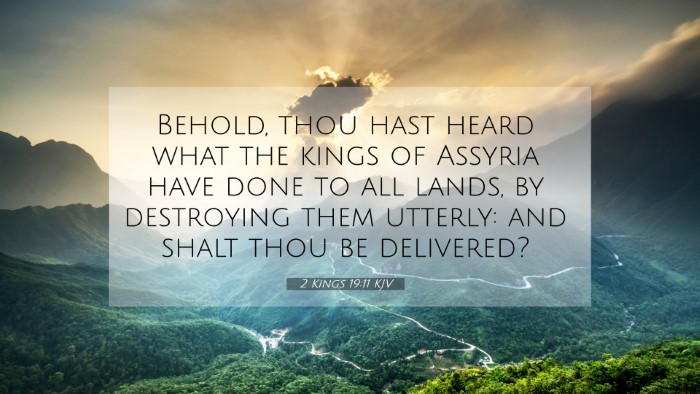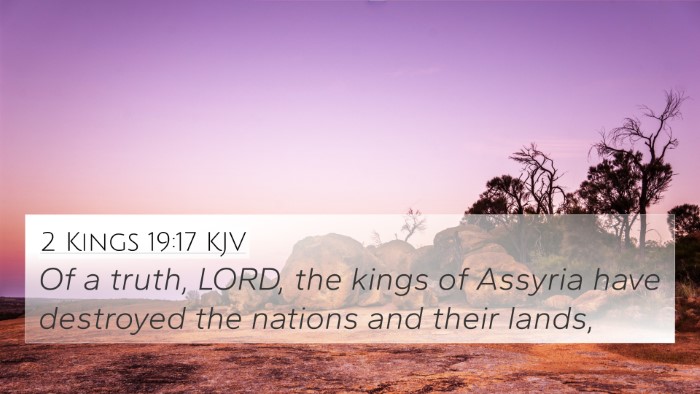Understanding 2 Kings 19:11
The verse 2 Kings 19:11 states: "Behold, thou hast heard what the kings of Assyria have done to all lands, by destroying them utterly; and shalt thou be delivered?"
This passage occurs in a context of great distress for the kingdom of Judah, as Sennacherib, the king of Assyria, has threatened Jerusalem. The message is one of despair as the threat of destruction looms over Hezekiah and his people.
Commentary Insights
Matthew Henry's Commentary
Henry notes that this verse highlights the audacity of the Assyrian kings, who have been successful in their campaigns against various nations. It serves as a reminder of the natural fear instilled in those who witness such devastation.
Albert Barnes' Notes
Barnes emphasizes the rhetorical question posed in this verse. It signifies a moment of doubt and fear regarding divine intervention. The prevailing sentiment is that if other fortified cities fell before the Assyrian might, the people of Jerusalem may find themselves next.
Adam Clarke's Commentary
Clarke expounds on the psychological state of the inhabitants of Jerusalem as they confront the threat from Assyria. He points out that this verse illuminates the common forgetfulness of God’s past deliverances when faced with immediate danger.
Key Themes and Connections
-
Human Fear vs Divine Trust: The verse illustrates humanity's instinctive fear in the face of overwhelming threats, contrasting with the call for faith and trust in God’s protection.
-
The Nature of Idolatry: The reference to destruction by other nations serves as a cue for the Israelites to reconsider their fidelity to God rather than relying on their own power or political alliances.
-
The Sovereignty of God: It implies that despite Assyria’s might, God's sovereignty supersedes human powers and threats, highlighting the need for dependence on God alone.
Bible Cross-References
- Isaiah 36:18-20: Addresses the same threat from Assyria and the challenge to trust in God.
- Psalms 20:7: Reminds believers that some trust in chariots and some in horses, but true deliverance comes from the Lord.
- Psalms 46:1-3: God as a refuge and fortress amid fear and chaos.
- 2 Chronicles 32:10-15: Chronicles the same event, emphasizing the challenge made by Sennacherib.
- Isaiah 37:10-13: Prophetic context of the same fearful situation, encouraging trust in God.
- Jeremiah 32:17: Confession of faith in God’s ability to deliver from the impossible.
- Micah 4:10: References the captivity and distress that the people of Israel faced during their times of trial.
Thematic Connections
These cross-references create a tapestry of themes that resonate throughout the scriptures:
-
God’s Faithfulness: Despite threatening scenarios, God remains faithful to His promises.
-
God's Deliverance: Historical accounts highlight God's mighty hand in deliverance, offering hope in current predicaments.
-
Prayer and Supplication: Hezekiah's response is an example of turning to God in prayer amidst fear.
Conclusion
2 Kings 19:11 serves as a poignant reminder of the existential threats that can challenge one’s faith. The insights from various commentaries enhance our understanding by providing a broader biblical context. As you explore these themes, consider using Bible cross-reference tools and concordances to further deepen your study of scriptures closely linked to this verse.






